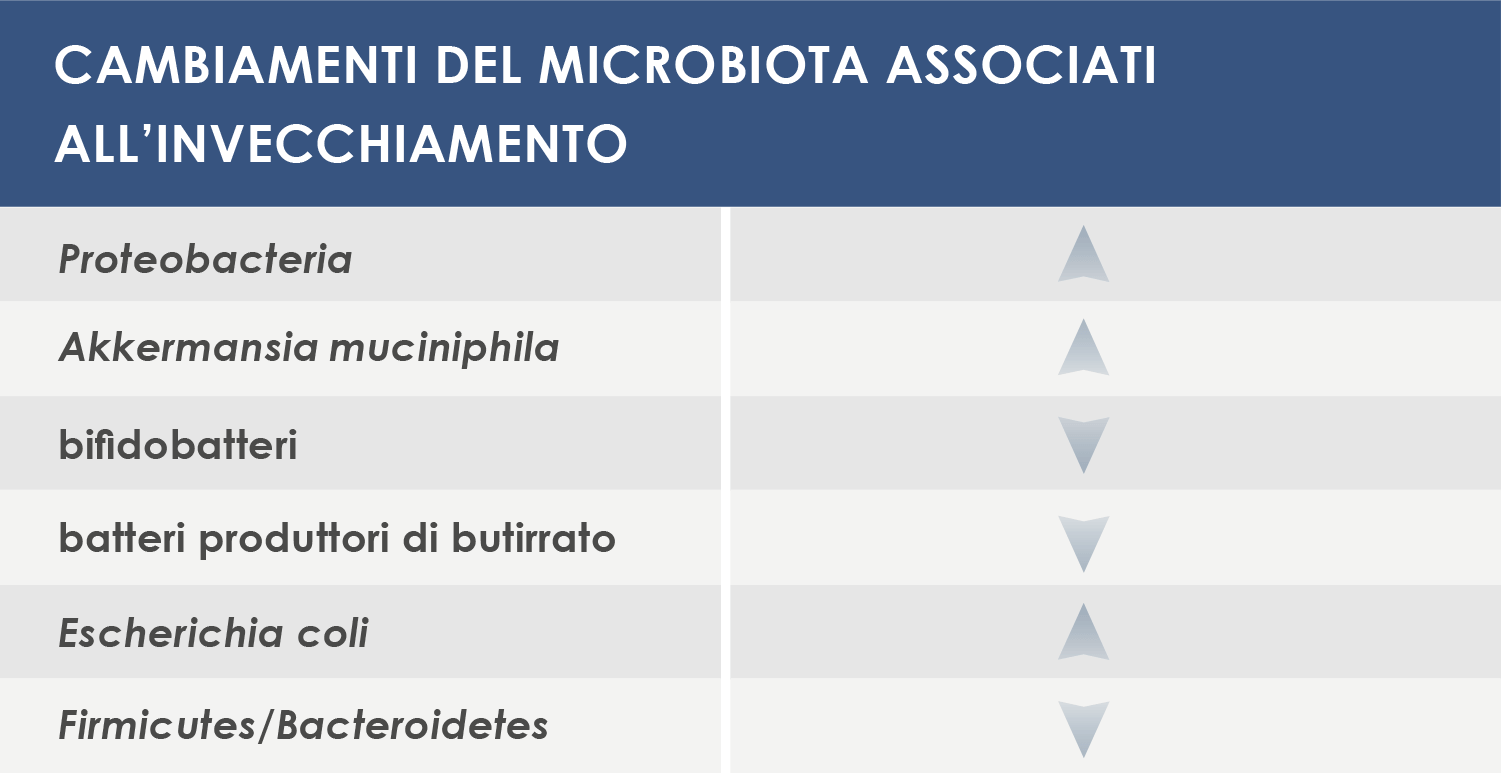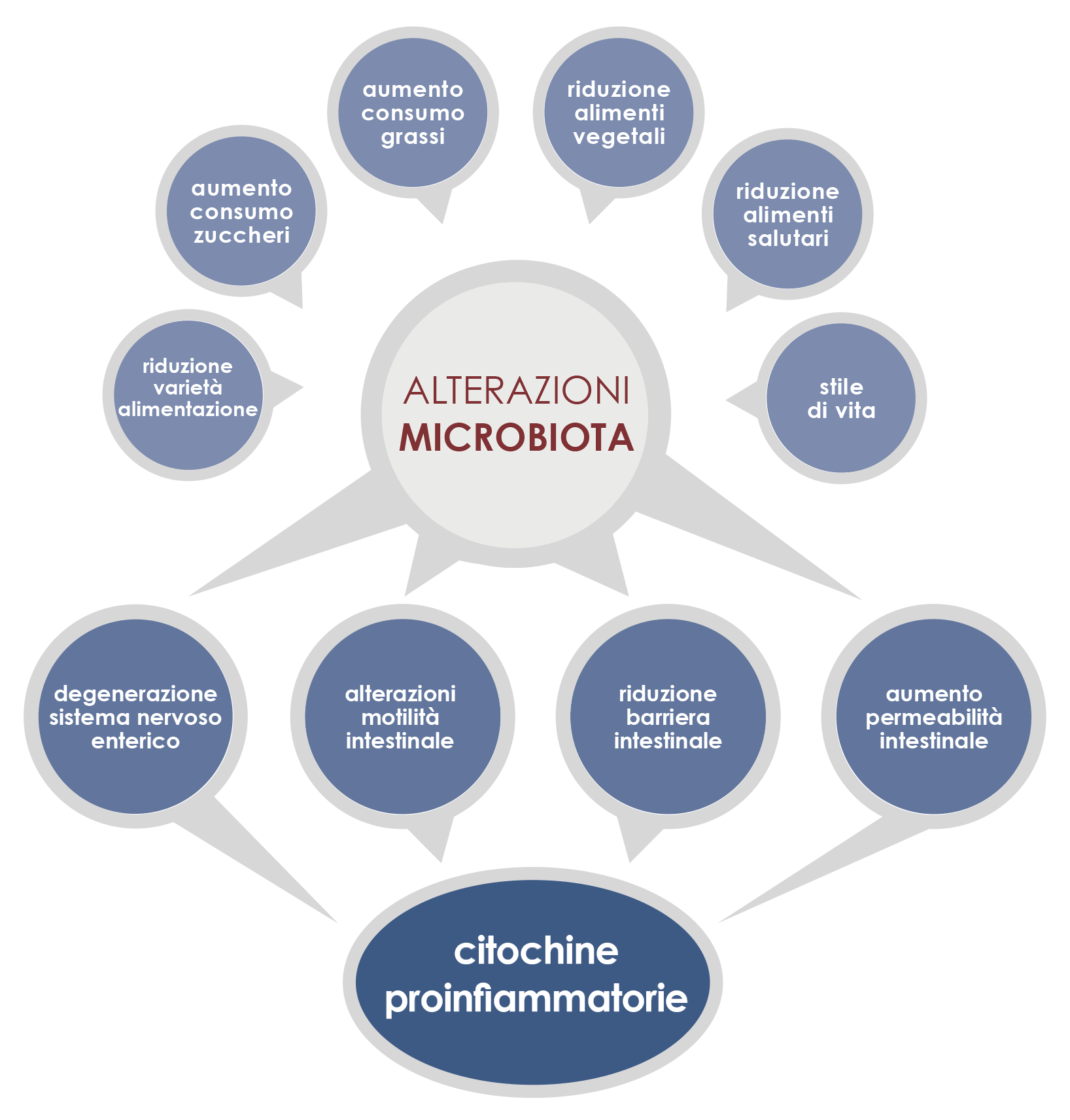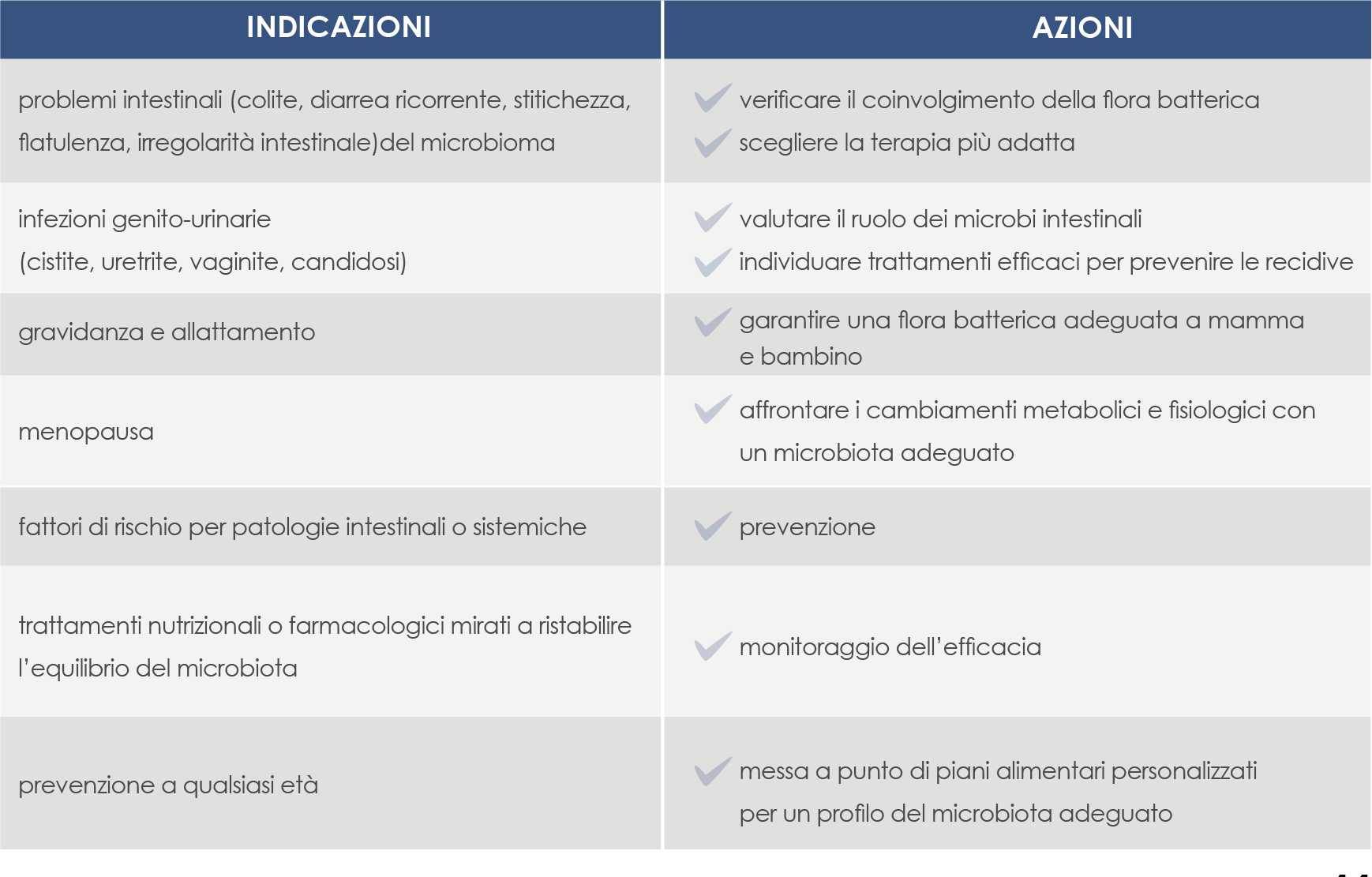Aging not only alters organs and tissues but also the microbiota, that is the community of microbes that live in the organism and on its surface. Some changes in this microbial population are lifestyle-dependent; others are instead a consequence of the passing of the years. Acting on them can help you age while staying healthy.
The microbiome analysis makes it possible to identify any alterations of the microbiota by studying its genes and consequently, to develop the most suitable strategies to promote a good health by correcting the imbalances detected.




